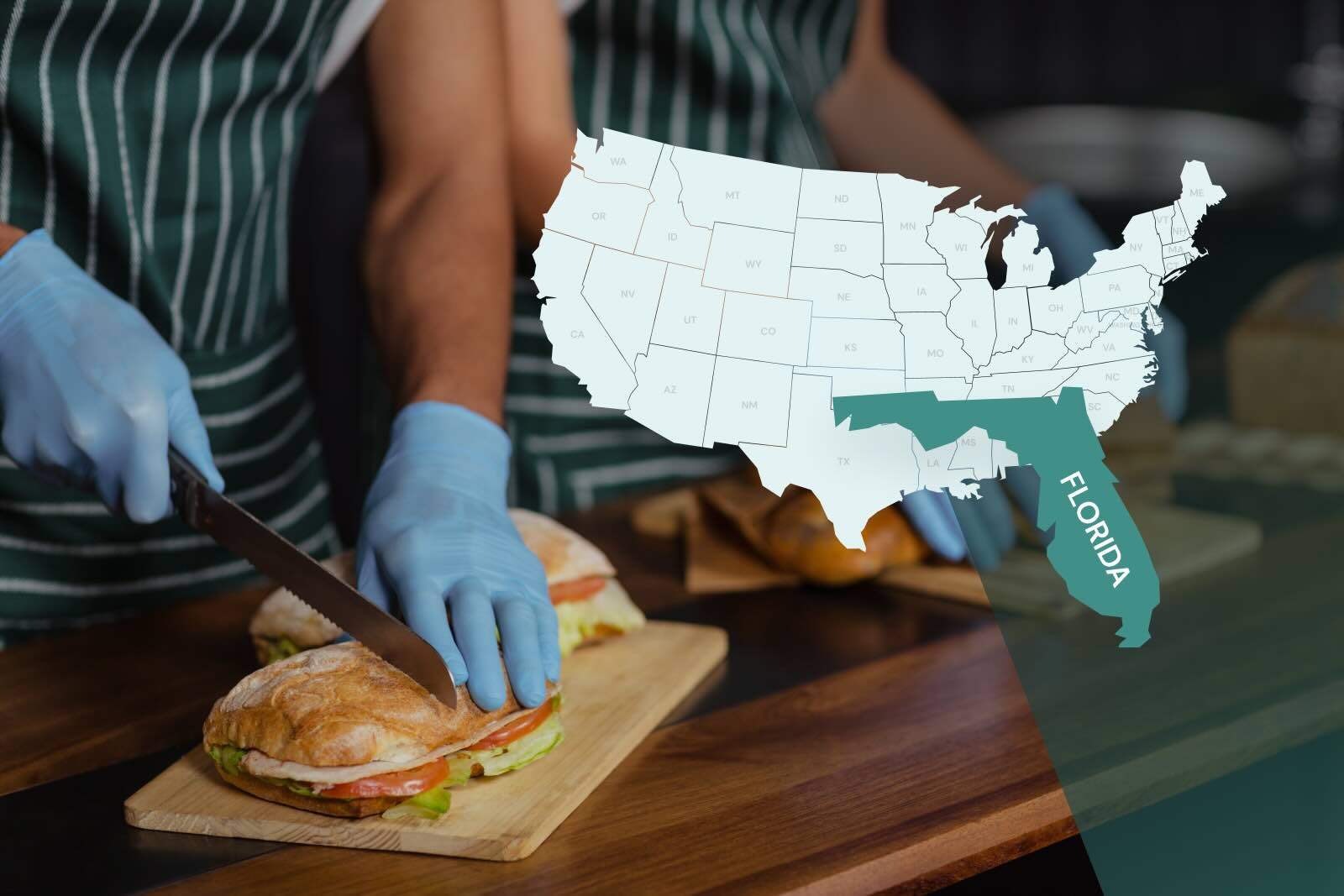Whether you’re looking to start a career in the food industry or a veteran simply moving to the Sunshine State, understanding Florida's food safety training and certification requirements is critical to your success–and the safety of your customers.
The hard work of training and earning a certification can be stressful, and the last thing you need is to find out you missed a requirement in the fine print!
Read on to learn about Florida's regulations and requirements, including who needs what and how to get it.
This blog will cover:
How is the FDA Food Code used in Florida?
Does Florida require food handler training?
Does Florida require food allergy training?
Does Florida require food manager certification?
How is the FDA Food Code used in Florida?
Every state’s government comprises different agencies, and those agencies, along with local jurisdictions, can adjust the Food Code to suit their needs.
Florida legislation is unique because three different state agencies utilize the U.S. Food and Drug Administration’s (FDA) Food Code, and one has adopted a different version.1, 2
When several state agencies adopt different versions of the Food Code, the FDA counts the most recent version as the one adopted by the state.
As a result, the FDA considers Florida an adoptee of the 2017 version.3
Does Florida require food handler training?
Yes, Florida requires all foodservice staff to complete a food handler training program within 60 days of employment and every three years after.
This training requirement falls under the jurisdiction of the Florida Department of Business and Professional Regulations (DBPR).4 Any food handler training you take must be a DBPR-approved training program.5
Your training provider or establishment will take care of reporting that you’ve completed your required training.
Note: if you plan to earn a Food Protection Manager Certification, you do not need food handler training.
Does Florida require food allergy training?
Food allergen awareness training is not a requirement in Florida.
However, the DBPR Division of Hotels and Restaurants states that an establishment’s managers and staff need a basic knowledge of food allergens.4 So this type of training can’t hurt!
If you work with food in a school setting, there’s a strong possibility that allergen awareness training is a part of your district’s food allergy policies. If you’re unsure, you should ask your administration and review the Florida Administrative Code’s 2009 Florida School District Food Allergy Policies.6
Does Florida require food manager certification?
Yes, managers must earn a Food Protection Manager Certification by passing an exam accredited by the ANSI National Accreditation Board (ANAB) and Conference for Food Protection (CFP) within 30 days of employment. Most credentials are valid for five years.
Every foodservice establishment must have at least one certified food protection manager (CFPM), and that manager must be present any time four or more staff members are handling food.7 However, if your establishment only serves pre-packaged, non-hazardous foods, a CFPM is not required.8
It is important to note that certified managers are responsible for providing their staff with training within 30 days of employment and annually by March 31 of each year.
The takeaway
With three agencies involved in the rules and regulations, Florida takes food safety seriously! Whether you’re a food handler or manager, the right training and credentials can help you stay compliant and protect the customers who come through your establishment. Now that you have a clear understanding of Florida’s requirements, you can easily make food safety a top priority.
Sources
-
Department of Business & Professional Regulation: DBPR: Hotels and Restaurants - Food Service Employee Training
-
Department of Business & Professional Regulation: Food Service Training Certification System: Source File Specification
-
Florida Department of Education: The 2009 Florida School District Food Allergy Policies
-
The Florida Legislature: Section 509.039, Florida Statutes
-
Florida Administrative Code: Division of Food Safety





.png)

.png)
